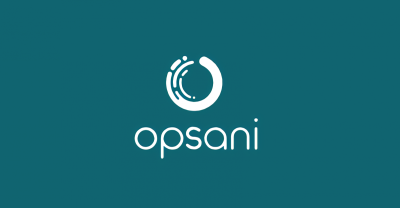
In the realm of DevOps, where speed, efficiency, and collaboration reign supreme, the integration of artificial intelligence (AI) has become increasingly vital. AI tools empower DevOps teams to streamline processes, automate repetitive tasks, and enhance overall productivity. By leveraging AI, organizations can accelerate their development cycles, improve deployment frequency, and ensure the delivery of high-quality software. Here, we delve into some of the top AI tools that DevOps teams should consider integrating into their workflows.
- Opsani: Opsani is an AI-driven continuous optimization platform designed to enhance the performance and efficiency of cloud applications. By leveraging advanced machine learning algorithms, Opsani dynamically adjusts various parameters such as CPU, memory, and network configurations to optimize application performance while minimizing costs. DevOps teams can benefit from Opsani’s automated optimization capabilities, which enable them to achieve optimal performance without manual intervention.
- DataRobot: DataRobot is a leading AI platform that empowers organizations to build and deploy machine learning models at scale. DevOps teams can leverage DataRobot to automate the process of model development, training, and deployment, thereby accelerating the integration of AI-driven capabilities into their applications. With its intuitive interface and extensive library of algorithms, DataRobot enables DevOps teams to quickly experiment with different models and identify the most effective solutions for their specific use cases.
- PagerDuty: PagerDuty is an AI-powered incident management platform that helps DevOps teams detect, triage, and resolve incidents in real-time. By analyzing vast amounts of telemetry data and applying machine learning algorithms, PagerDuty can identify patterns and anomalies indicative of potential issues within the infrastructure or application stack. This proactive approach enables DevOps teams to mitigate risks and minimize downtime, ultimately enhancing the reliability and availability of their services.
- Dynatrace: Dynatrace is an AI-driven observability platform that provides comprehensive insights into the performance and health of complex distributed systems. By automatically analyzing telemetry data from across the entire stack, including infrastructure, applications, and user experience, Dynatrace enables DevOps teams to gain deep visibility into their environments. With its AI-powered root cause analysis and anomaly detection capabilities, Dynatrace helps DevOps teams rapidly identify and resolve issues, thereby improving the overall reliability and performance of their systems.
- Jenkins X: Jenkins X is a cloud-native CI/CD platform that leverages AI to automate various aspects of the software delivery lifecycle. By integrating with cloud services such as Kubernetes and GitOps workflows, Jenkins X enables DevOps teams to streamline the process of building, testing, and deploying applications. With its built-in support for predictive analytics and intelligent automation, Jenkins X helps DevOps teams identify bottlenecks, optimize workflows, and accelerate the pace of innovation.
- Prometheus: Prometheus is an open-source monitoring and alerting toolkit that utilizes AI techniques to provide real-time insights into the performance of applications and infrastructure. By collecting metrics from various sources and applying advanced analytics, Prometheus enables DevOps teams to monitor key performance indicators, detect anomalies, and trigger automated responses. With its flexible querying language and scalable architecture, Prometheus empowers DevOps teams to gain actionable insights and ensure the reliability of their systems.
In conclusion, the integration of AI tools into DevOps workflows holds immense potential for enhancing efficiency, accelerating innovation, and improving the reliability of software delivery. By leveraging AI-driven capabilities such as automated optimization, predictive analytics, and intelligent automation, DevOps teams can overcome the challenges of managing complex, dynamic environments and deliver value to their organizations with greater speed and agility. As AI continues to evolve, DevOps teams must stay abreast of the latest advancements and embrace AI-driven solutions to stay competitive in today’s fast-paced digital landscape.